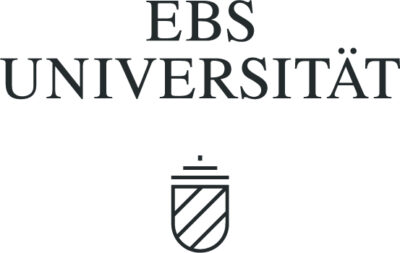The Challenges of Nuance
Five Questions to Sabine Leutheusser-Schnarrenberger
This week, Verfassungsblog all eyes were on EYES EVERYWHERE, our Focus symposium on state and private mass surveillance under the EU Charta. At its core is the question of balancing security interests with fundamental rights in an increasingly digitalized world. The symposium offers nuanced perspectives on how far democratic societies can go in the name of security. Former Federal Minister of Justice Sabine Leutheusser-Schnarrenberger is one of the most prominent voices in German data protection law.
1. In light of the ECJ case La Quadrature du Net II, Joachim Herrmann, the Bavarian Minister of the Interior, emphasizes that “the level of threat determines the proportionality of the means – both are subject to the constant change over time.” Do you see such a change, the increased threat level described by Herrmann, and do you share his assessment that national security needs a “Zeitenwende”?
Although there are always problematic developments in national security, threat situations can also be overstated. Overall, Germany is a safe country. There is no doubt that the internet has fundamentally changed crime, which has increasingly shifted to the digital space. However, the call for new surveillance powers or even a “Zeitenwende” ignores very important aspects. Firstly, most digital threats must be addressed in a very real way – and crime solving rates are stable in the digital world. Secondly, it is questionable whether the demanded instruments actually provide more security. There is a lack of sufficient evidence here, partly because there are often no evaluation clauses. Instead of addressing these points and arguing for an evidence-based, fundamental rights-oriented reform of the security architecture, Mr. Herrmann and others often provide simplified answers. Of course, digital surveillance measures restrict the freedoms of citizens. The fathers and mothers of our Basic Law already saw this “certainty of earlier days”. Fundamental rights were never intended to be “fair-weather institutions”. They are intended to ensure the protection of the individual, especially in times of uncertainty and threat, even if it seems appropriate for the majority or the state to restrict them.
++++++++++Advertisement+++++++++
An der EBS Universität in Oestrich-Winkel ist am
Lehrstuhl für Öffentliches Recht,
Empirische Rechtsforschung und Rechtsökonomik
(Prof. Dr. Emanuel V. Towfigh)
zum 1.1.2025 eine Stelle als
Wissenschaftliche:r Mitarbeiter:in (m/w/d)
zu besetzen (Teilzeit, zunächst 25 %, befristet auf zwei Jahre mit Verlängerungsoption).
Promotion möglich und erwünscht.
Inhaltliche Schwerpunkte: Forschung zu Demokratie, Digitalisierung, Diversität; Lehre im Verfassungsrecht.
Weitere Informationen finden Sie hier.
+++++++++++++++++++++++++++++
2. This summer, the government, which was still in power at the time, seemed to see a need for such changes and voted in favor of the possibility of AI-supported biometric analysis of the internet as part of the “security package” (parts of the package were stopped by the Bundesrat, however). Critics fear that this will only be possible via extensive databases with all image material from the internet in order to search for suspects in this stored material. What do you think of these measures?
Biometric analysis of the internet opens up new surveillance possibilities that were unimaginable just a few years ago. AI technology is developing rapidly and without a foreseeable endpoint, so the openness of the technology (to be implemented) was a central problem of the security package. Due to the wide range of implementation options, it remained unclear to what extent fundamental rights would be curtailed. However, key decisions like this should be made directly in the law, in the interests of fundamental rights. There was a lively debate on the security package, during which many problematic provisions were improved or equipped with safeguards. The debate about which AI systems we no longer consider tolerable in a democracy was conducted extensively at the European level as part of the AI Act. AI systems that extract images from the internet in an untargeted manner in order to create or expand databases for biometric facial recognition are prohibited under the AI Act. This clear line should also be defined in national laws. The fact that parts of the security package have now been stopped in the Bundesrat, because some states demanded more surveillance, suggests that some want to reopen this debate in Germany. I warn against this being done with populist slogans and within only a few weeks. This requires a broader and less agitated debate.
3. The ECJ expressed, in April 2024, the fear that without IP data retention there would be “a real risk of systemic impunity”. This argument is repeatedly put forward in calls for data retention. Do you have the impression that the extensive data pools collected by private providers for commercial purposes are sufficiently taken into account? Should these be included in an “overall surveillance calculation”?
The idea that only data retention can prevent impunity has been disproved. There has been no data retention in Germany for more than ten years and the security authorities still announce better crime solving rates every year. When the data retention laws were abolished, I commissioned a study in my role as Federal Minister of Justice to identify possible gaps in protection. The result was clear: there are no such gaps. In addition, the Quick Freeze model, an alternative to indiscriminate data retention, has been an option for years. Implementing this model and then evaluating it would be a sensible way to provide the security authorities with a new, legally secure instrument with which they can access IP address data, among other things.
The idea behind the so-called “overall surveillance calculation” is that permanent surveillance fundamentally changes the nature of society. It is part of the constitutional identity of the Federal Republic of Germany that the exercise of freedom may not be fully recorded or monitored. Legislators must therefore take existing surveillance powers into account when considering new instruments. If the state wants to extend its surveillance reach by accessing private data collections, these must also be included in the overall calculation, that is quite clear to me.
++++++++++Advertisement+++++++++
03.12.2024 | 17:00 | Berlin-Brandenburgische Akademie der Wissenschaften | Global Health Law and Justice: An Unfinished Agenda | Heidelberger Salon | With Alicia Ely Yamin (Harvard University), Lawrence Gostin (O´Neill Institute / Georgetown University, Ilona Kickbusch (World Health Summit), Björn Kümmel (Federal Ministry of Health, Germany) | Moderated by Alexandra Kemmerer (MPIL)
+++++++++++++++++++++++++++++
4. Do you think it is necessary for German or European legislators to take stronger action against such private data collection, for example by reforming the GDPR or introducing the e-Privacy Regulation, which has been on hold for a long time?
Extensive data collection makes us vulnerable, both individually and as a society. One example is Meta’s data collection, which almost completely records users’ online activity inside and outside of Facebook, which can create a feeling of constant surveillance. The ECJ emphasized this in October and found, among other things, that Meta is not allowed to use data indefinitely for targeted advertising, but on the contrary violates the principle of data minimization. This underlines the importance of the GDPR principles; however, it also shows that they are often only enforced by data protection activists (such as Max Schrems in this case). Not only because the practices are obscured, but also because many perceive them as unavoidable or even normal. Better law enforcement is therefore needed at this point and the resumption of negotiations on the e-Privacy Regulation could also be useful.
5. Time and again, massive anti-Semitic insults and incitement to hatred occur on the Internet. You were the Anti-Semitism Commissioner of the state of North Rhine-Westphalia until the end of October of this year and in this role you dealt professionally with anti-Semitic crimes on the internet. Do you have the impression that anonymity on the Internet facilitates such acts or represents a relevant obstacle to the prosecution of such acts?
Anonymity protects freedom of expression and is essential for a democracy – both offline and online. It enables people to talk about highly personal, religious and political issues without having to fear immediate ostracism and repression. The problem is not that the internet offers room for anonymity, but the growing social acceptance of anti-Semitic statements. It has reached a level that must wake us up. Increasingly, people are openly spreading anti-Semitic hate speech under their real names – in social media, comments and threat letters. But also on the street, as part of openly anti-Semitic demonstrations, often disguised as criticism of Israeli policy. People who want to spread hatred are clearly no longer sufficiently deterred by laws. The flip side of anonymity on the Internet would be the so-called “mandatory real name verification”, which has been a subject of controversy since the beginning of the Internet. Even such a measure does not lead to success, as the example of South Korea shows. Malicious comments such as defamation and insults hardly decreased there – despite the fact that such defamation is also punishable under Korean criminal law. A study by the University of Zurich even shows that users are often more aggressive under their real name than anonymous users. We therefore need truly effective methods to structurally and consistently combat punishable forms of hate online. It is unacceptable for prosecutable crimes to go unpunished for organizational, financial or personnel reasons.
The interview was conducted in German.
*
Editor’s Pick
by MARIE DIEKMANN

December is here, and what could be more apt than baking cookies? Heidesand is one of the most delicious classics of German Christmas baking, resembling Scottish shortbread and very easy to make. It is important to let the butter cool down before continuing to work with it. Also, do not exceed the suggested baking time, even if the cookies still feel very soft—they will firm up as they cool. Finally, sprinkle the warm cookies with sugar or, even better, with salt. Let them cool. Enjoy.
Ingredients (for about 40 cookies): 250 g butter, 125 g sugar, 1 packet of vanilla sugar, 300 g flour, for sprinkling: sugar or salt, alternatively chocolate for coating.
Instructions: 1. Melt the butter in a saucepan over medium heat until it turns slightly brown. Then let it cool until it is solid but still soft. 2. Cream the clarified butter with sugar and vanilla sugar. Add the flour and knead everything into a smooth dough. 3. Form the dough into rolls (about 3–4 cm in diameter), wrap in plastic wrap, and refrigerate for at least 2 hours. 4. Cut the chilled dough rolls into slices about 0.5 cm thick or use cookie cutters. 5. Preheat the oven to 180°C (350°F) and bake the cookies for about 10–12 minutes. While still warm, sprinkle with sugar or salt.
*
The Week on Verfassungsblog
…summarized by FRIEDRICH ZILLESSEN
Is European law on its way to a quiet revolution? In our editorial last week, we already discussed the ‘mega-hearing’ on the justiciability of Art. 2 TEU. LENA KAISER, ANDREAS KNECHT and LUKE DIMITRIOS SPIEKER discuss the EU Commission’s ‘human rights fight against Hungary’s anti-LGTBIQ law and conclude: European society strikes back!
BENEDIKT RIEDL (GER), on the other hand, raises doubts: The ECJ is not authorized to discipline the member states in back rooms on the Kirchberg by means of a canon of values because Article 2 TEU is not a ‘meta-constitution’.
Staying with EU law, the ST v Frontex judgement is the latest in a series of key decisions concerning EU human rights responsibility issued this year. JOYCE DE CONINCK (EN) explains why some decisions perpetuate a worrying responsibility gap, while others demonstrate the Court’s willingness to address it.
UniCredit’s (Milan) acquisition of a 9% stake in Commerzbank (Frankfurt) is being criticized in Germany as a ‘threat to financial stability’. ALESSANDRO CUOMO and PHEDON NICOLAIDES (EN) argue that German authorities cannot legally block this move.
The arrest warrants issued by the International Criminal Court against Benjamin Netanyahu and Yoav Gallant are a ‘red card’ for Israel’s legal system, says OR BASSOK (EN). They show that the more Israel’s Supreme Court extends its powers and reaches into the political arena, the less the court can fulfill its core task of defending human rights.
++++++++++Advertisement+++++++++
Zum 01.02.2025 ist am Lehrstuhl für soziologische Theorie der Zeppelin Universität in Friedrichshafen in Teilzeit (65%), befristet für 4 Jahre und mit der Möglichkeit zur Promotion eine Stelle als
Mitarbeiter:in im Projekt »Prekäre Popularität: Politischer Populismus als Delegitimierung administrativer Verfahren«
zu besetzen.
Im Rahmen des DFG-geförderten Sonderforschungsbereichs „Transformationen des Populären“ untersucht das Teilprojekt die Empfänglichkeit und Widerständigkeit administrativer Strukturen für und gegen Populismus mit Fokus auf die kommunale Ebene.
Die ausführliche Stellenbeschreibung finden Sie hier.
+++++++++++++++++++++++++++++
A few weeks ago, a video went viral showing Māori lawmakers protesting against a bill in the New Zealand parliament using the traditional dance form haka. CARWYN JONES (EN) explains what the fierce protest is aimed at.
Instead, protests should not be so fierce over the AI warfare revolution, says ROHIT GUPTA (EN). With Israel’s Lavender and Ukraine’s use of Clearview AI, artificial intelligence is clearly revolutionizing warfare. While 57 countries debate a ‘responsible’ use, he argues that the existing state responsibility rules already regulate this quite well.
Now that early elections are approaching in Germany, is the Federal Office for the Protection of the Constitution allowed to publish its new Alternative für Deutschland (AfD) report? TILL PATRIK HOLTERHUS and JANOSCH WIESENTHAL (GER) take a closer look at the legal situation and come to the following conclusion: If the Federal Office raises the AfD to the status of a secured ‘right-wing’ observation case, it must inform the public!
The far-right AfD is also the subject of a statement by 17 constitutional law professors (GER) explaining why they consider a party ban procedure to be necessary and likely to be successful. The expert opinion, which was submitted to the German Bundestag, is accompanied by a detailed collection of statements that, in four categories, provide examples of the AfD’s endeavours against the constitution.
The much-debated resolution of the German Bundestag on antisemitism also addresses state support for the arts. However, art should not have a political mandate if it is to be truly relevant in democracies, comments CHRISTINE LANDFRIED (GER).
And NOAH KISTNER (GER) analyzes why the feature of commercial activity (“Gewerbsmäßigkeit”) in criminal law offenses hits low-income offenders particularly hard – and points out possibilities for reform.
++++++++++Advertisement+++++++++

Rechtsreferendariat (Wahlstation)
Du hast Lust, im Rahmen deiner Wahlstation an der Schnittstelle von Wissenschaft und Journalismus zu arbeiten? Für kluge und engagierte Rechtsreferendar*innen haben wir in unserem Büro in Berlin-Neukölln einen Schreibtisch frei!
Was wir uns wünschen:
- verfassungsrechtliche Expertise
- verfassungspolitisches Temperament
- Sprachgefühl
- Themengespür
- die Fähigkeit, deutsche und englische Texte zu redigieren
Wir sind Jurist:innen und unsere Arbeit ist genuin juristisch: Sachverhalte mit Rechtsfolgen verknüpfen und das Ergebnis für die Öffentlichkeit zugänglich machen. Wenn du darin für die Zeit deiner Wahlstation von uns ausgebildet und Teil unseres Projekts werden willst, dann freuen wir uns auf deine Bewerbung – bitte E-Mail an staff@verfassungsblog.de!
+++++++++++++++++++++++++++++
The online symposium EYES EVERYWHERE is focussing on mass surveillance and the EU Charter of Fundamental Rights. The leitmotiv of all contributions is about means and ends, about a nuanced approach to balance out security and protection of persons and their data. The task of the democratic legislator to balance fundamental rights and to decide on the proportionality of measures is certainly not an easy one. The question of who oversees the legislators and who has the last word on it will occupy us all for the foreseeable future.
And finally, if you would like to give us happy a small pre-christmas gift: Press this button.
*
That’s it for this week! Take care and all the best.
Yours,
the Verfassungsblog Editorial Team
If you would like to receive the weekly editorial as an email, you can subscribe here.
FOCUS is a project which aims to raise public awareness of the EU Charter of Fundamental Rights, its value, and the capacity of key stakeholders for its broader application. Views and opinions expressed are however those of the author(s) only and do not necessarily reflect those of the European Union or the European Commission. Neither the European Union nor the European Commission can be held responsible for them.








